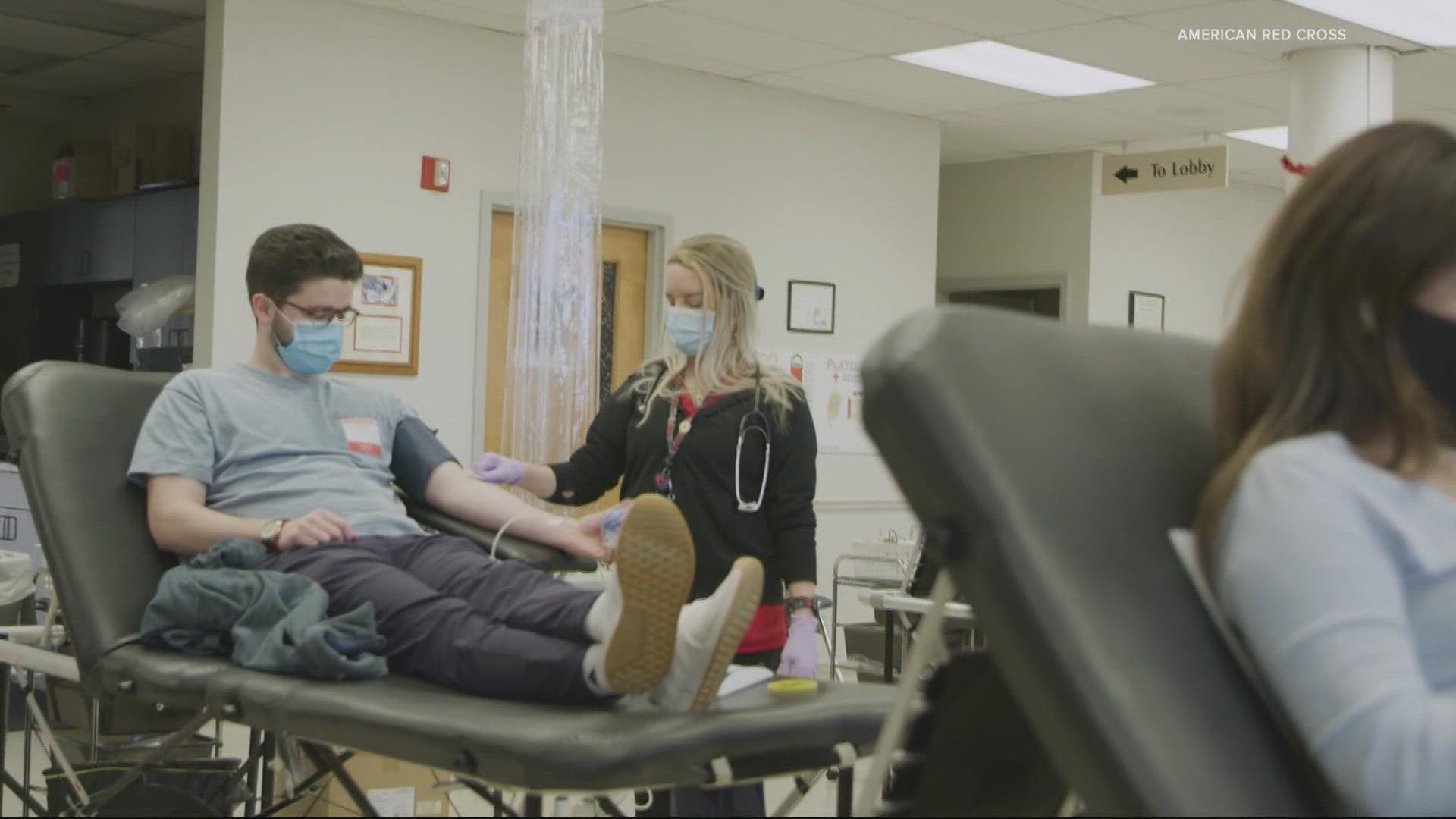OREGON, USA — The American Red Cross said the nation is facing a blood shortage crisis. The aid organization has less than a day's supply of critical blood types.
During a news conference with regional Red Cross and OHSU leaders Tuesday, they shared the impact in Oregon and Washington.
Angel Montes, regional donor services executive for the American Red Cross, said Oregon and Washington typically host 35 blood drives per day, producing 500-700 units of blood.
However, over the course of the pandemic, national blood donations dropped about 10%.
"I've been with this organization 18 years, and I haven't seen it this bad," Montes said.
"The situation is now at a crisis level," said Dr. Rachel Cook, OHSU quality medical director of inpatient Bone Marrow Transplant Unit and member of the OHSU blood supply task force.
Cook said hospitals everywhere are now making tough decisions about who should get the blood. Important surgeries are being delayed, and some patients whose conditions are deemed less severe have to wait for transfusions.
"We can no longer give some patients the blood and platelets that we normally would, such as patients with leukemia," she said.
Lara Weberling also joined the news conference. In 2012, her young son Hans passed away from cancer. Prior to that, he was kept alive through multiple cancer treatments and more than a hundred blood transfusions.
"You could just see him perking back up and being brought back to life," Weberling described.
Weberling now works with the Red Cross, hoping to inspire others to give.
"I always say, I let Hans's light guide me," she said.
Blood collection agencies have faced shortages for years, but now the challenges are greater.
The Red Cross estimates fewer than 40% of Americans are even eligible to donate blood.
To help ease up eligibility somewhat during the pandemic, the FDA has temporarily reduced 80s-era restrictions on gay and bisexual men, allowing them to donate blood, but only if they have not had sexual contact within three months.
The pandemic is the biggest factor in the shortage.
The Red Cross said high school and college campus blood drives have dropped 62%.
Staffing shortages at the Red Cross, hospitals and other medical providers have lead to some blood drives and appointments being limited or canceled.
Some donors are also hesitant to go in during COVID-19.
"Worst blood shortage in a decade," Montes said. "We are facing such a dangerous situation right now."
"We cannot get enough blood in the type needed for some patients," Cook added.
The Red Cross said it is safe for people to go in to donate, as its drives implement stringent COVID protections.
To avoid cancelations and longer waits, it suggested people schedule appointments online or by phone, rather than simply drop into a blood drive.
The Red Cross emphasized the need will persist over the next month and beyond, and that people should keep in mind the constant need. Blood can only be stored for a short time, so donations must be used quickly.
Weberling implored the community to step in and make blood donation a routine like others did to help her son.
"We always just felt gratitude for the miracle of this gift donors had offered," she said.

